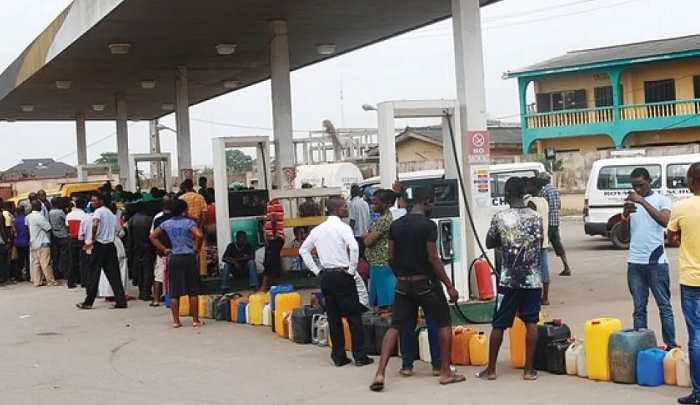The Fuel Scarcity and New Naira Notes Racket: Dismantling Suffernomics

The last two months have been months of suffering and scarcity for the Nigerian people. The first problem has been caused by the inability of the government-owned NNPC Ltd to provide consumers with sufficient petrol. This is a problem that has been ongoing since January 2022 and I have written about it here and here. But the scarcity has been far more intense since December 2022. Every part of the country is affected.
“Many supporters of the government on social media have been blaming greedy bankers and POS operators for hoarding the new notes. But the reason it is profitable to hoard the notes is that the Central Bank cannot guarantee sufficient supply”.
The second problem is caused by the chaotic rollout of new naira notes (N200, N500 and N1000) and the recall of the old ones by the Central Bank of Nigeria. As with every other thing under the governorship of Godwin Emefiele, this process has been characterized by an incredible scarcity of new notes.
The banks that were supposed to take back the old notes were still seen dispensing the same old notes back to the general public right until the recall deadline of January 31. For the first time in recent memory, naira notes have become so scarce in Nigeria that people are now buying naira notes from the “black market” at a premium.
Also Read: Nigerians Lose Patience As Naira Scarcity Lingers
What defines and connects these two developments is the widespread suffering caused by avoidable scarcity. Forget whatever excuse the government is coming up with, our petrol scarcity is self-inflicted. We have managed to manufacture fuel scarcity out of thin air. Look around the world, and hardly can you find any other country going through petrol scarcity. Nigeria does not consume the most petrol in the world neither are we the only country that imports its petrol. But what we do that most other countries don’t do is central control of the importing and pricing of petrol by a government that is already overwhelmed with debt in a country with borders that are more porous than woven baskets.
The last few days have seen the government deploy its security forces, especially the Department of State Security, to force petrol stations to sell the petrol they are presumably hoarding. Why do we need the DSS to enforce the sale of petrol when we don’t need to enforce the sale of other commodities, even imported ones like flour and clothes? Even diesel, another commonly used fossil fuel, has been widely available and does not require security forces to ensure its availability.
The truth is no amount of grandstanding is going to solve the self-imposed scarcity. What we need to do is to end the petrol subsidy and allow the private sector players to compete with the NNPC in importing and marketing petrol. But if there is something a majority of Nigerians agree on, it is the absolute importance of petrol subsidy to sustain our very breath. Far too many Nigerians and our leaders see cheap petrol as a constitutional right. So, we all have to enjoy this scarcity and the suffering it brings.
The currency scarcity is also an orchestration of a government that’s hellbent on imposing cashlessness on Nigerians. There are indeed good reasons to reduce cash transactions in Nigeria, but the way the government and its central bank have gone about it has been less than competent and smacks of cruelty and disdain for Nigerians. It is impossible to remove cash from an economy and there is nowhere in the world where cash is still not spent. Reducing cash in the economy is also not something that should be achieved through force but through improvement in cashless transactions, its convenience, and most especially its security and reliability.
What we have is the central bank deliberately undersupplying the market with the new naira notes to replace the old ones it has now rendered useless. The apex bank has refused to supply a sufficient volume of the new notes. Many supporters of the government on social media have been blaming greedy bankers and POS operators for hoarding the new notes. But the reason it is profitable to hoard the notes is that the Central Bank cannot guarantee sufficient supply. This is not the first time Nigeria is changing its notes, but this is probably the first time the Central Bank is using note change as a pretext for imposing a cashless policy.
Also Read: Mtn Nigeria Plc Has Reported A Pre-Tax Profit Increase Of 22.3% For FY 2022
Whenever there is scarcity, people take advantage. This is not unique to Nigeria or Nigerians. It is why it is important for policymakers to make sure their policy would not unwittingly lead to scarcity. Let us all look around us and notice all the commodities that are available and easy to get as long as one can pay for them. Why are greedy traders not hoarding them? Why don’t we have a scarcity of commodities whose prices are not controlled by the government? The market is almost always right and government intervention in the market almost always backfires, one way or another.
To reduce ongoing scarcity and suffering, the government is advised to immediately give up control of petrol. The central bank is advised to increase cash supply while supporting the private sector’s efforts to automate as many payments and transactions as possible.







